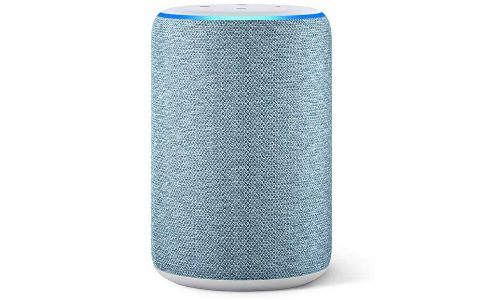The COVID-19 coronavirus is certainly temporarily upending many normal routines, from air transportation to foodservice. But what will be the long-term effects? According to a new report from ABI Research, the virus could make voice control supersede other forms of interfaces for the smart home, opening up a huge opportunity for integrators.
According to the ABI Research “Taking Stock of COVID-19: The Short- and Long-Term Ramifications on Technology and End Markets” report, consumers in general are going to be reticent in the short term to touch any surfaces without using disinfectant, including door handles/knobs, light switches, remote controls, and thermostats. Also, toilets and faucets in the bathroom and kitchen.
That hesitancy, says the report, will lead to increased demand for voice control. All of those items are currently devices that custom integrators can program to be controlled by voice commands. It’s a big opportunity for CE pros to pattern voice control as a wellness solution for their clients.
“Voice has already made significant inroads into the smart home space,” says the report. “With the push to avoid shared surfaces even within a home comes greater value in voice control. Voice control can mean avoiding commonly touched surfaces around the home from smartphones, including TV remotes, light switches, thermostats, and more. Voice can also be leveraged for online shopping and ensuring that those deliveries are received securely without the need for face-to-face interaction.
“Smart locks and smart doorbells/video cameras can enable deliveries to be placed in the home or another secure location directly, or monitored securely on the doorstep until the resident can bring them in. Such delivery capabilities are especially valuable for those already in-home quarantine or for those receiving home testing kits.”
Voice Control As Long-Term Solution
But the report sees voice control from Amazon Alexa, Google Assistant and Josh.ai becoming the de facto control method due to the virus over the long term.
“Voice control is the Trojan horse of smart home adoption. Any additional drive and incentive for voice control in the home will help drive awareness and adoption for a range of additional smart home devices and applications.
“Greater emphasis and understanding, and above all, a change of habit and experience in moving away from physical actuation toward using voice in the home will support greater smart home expansion throughout individual homes. A greater emphasis on online shopping and delivery will also drive smart home device adoption to ensure those deliveries are securely delivered.”
In addition to the growth of voice control, ABI Research anticipates strong movement for increased in-home monitoring capabilities that can generate recurring monthly revenue (RMR), much of it driven by home health.
“Precautions for COVID-19 will bring new routines into many millions of people’s daily lives in and around their homes,” says the report. “Smart home vendors and system providers can certainly emphasize the role of voice and other smart home implementations to improve the day-to-day routines within a home and the ability to minimize contact with shared surfaces, as well as securing and automating home deliveries.
“There is role for integrating smart home monitoring and remote health monitoring with a range of features, such as collecting personal health data points (temperature, activity, heart rate) alongside environmental data (air quality or occupancy) to help in the wider response and engagement for smart city health management.”







